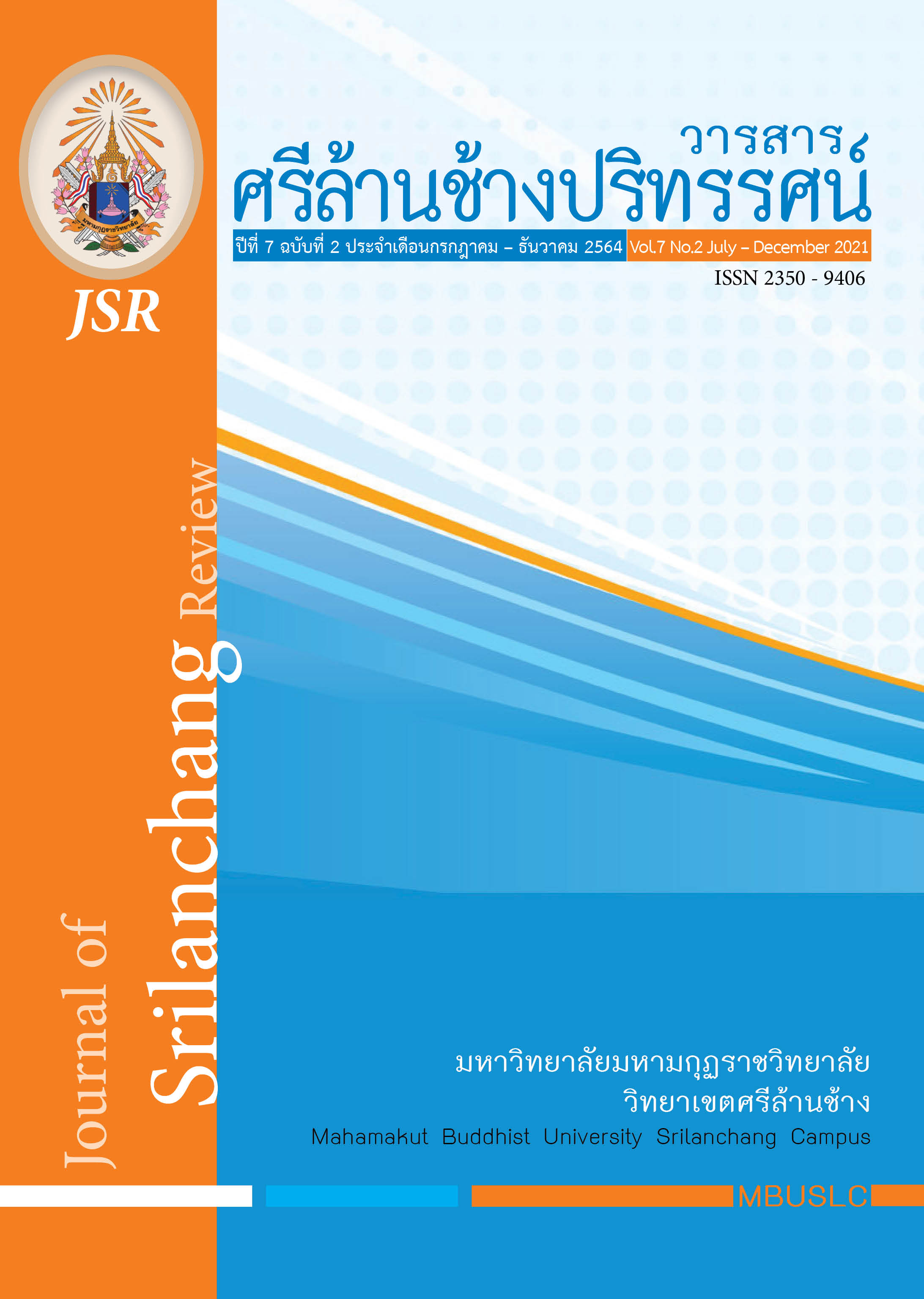POLITICAL EQUALITY IN TIPITAKA
Main Article Content
Abstract
The objectives of the academic article were to demonstrate the characteristics of Buddhist teachings on equality, the development of democratic equality in the council of Buddhist monks, so-called Sangha, and the Buddhist teachings on equality in the Tipitaka. The documentary research was conducted by reviewing the concepts, theories, and research documents on the political principle of equality in the Tipitaka. The research results revealed that the characteristics of Buddhist teachings on equality were involved with the principles and guidelines on development of city people’s lifestyle along with the democratic way of life. It was found significantly consistent with the Buddhist teachings. From past to present, Buddhism focused on development of the state citizens. Literally, the principle of equality was initially developed in Buddhism during the Buddha’s time. In the first period of Buddhism propagation, the Buddha himself allowed the people to be monks in Buddhism. Later, a group of monks was allowed to make a person a monk. This was regarded as equality in Buddhism. The principle of equality in the Tipitaka was referred to impartiality or something contradictory to discrimination, which meant any action under the social rules, regularities, and norms. In the third condition of walfare (Aparihāniya-dhamma), appropriateness, stressed by the Buddha, was referred to acceptance of what was improper and inappropriate to Thai society.
Article Details

This work is licensed under a Creative Commons Attribution-NonCommercial-NoDerivatives 4.0 International License.
บทความที่ได้รับการพิจารณาจากคณะกรรมการผู้ทรงคุณวุฒิและเผยแผ่ในวารสารฉบับนี้ เป็นทัศนคติและข้อคิดเห็นส่วนบุคคลของผู้เขียนแต่ละท่าน ไม่ถือว่าเป็นทัศนะคติและความรับผิดชอบ
ของบรรณาธิการ
บทความ ข้อมูล เนื้อหา รูปภาพ ฯลฯ ที่ได้รับการตีพิมพ์ในวารสารศรีล้านช้างปริทรรศน์ ถือเป็นลิขสิทธิ์ของวารสารศรีล้านช้างปริทรรศน์ หากบุคคลหรือหน่วยงานใดต้องการนำทั้งหมดหรือส่วนหนึ่งส่วนใดไปเผยแพร่ต่อหรือเพื่อกระทำการใด ๆ จะต้องได้รับอนุญาตเป็นลายลักอักษรจากวารสารศรีล้านช้างปริทรรศน์ ก่อนเท่านั้น
References
คนอง วังฝายแก้ว. (2551). หลักนิติบัญญัติบริหารและตุลาการตามแนวพระพุทธศาสนา. บทความวิชาการ. มหาวิทยาลัยมหาจุฬาลงกรณราชวิทยาลัย.
ชาตรี ประกิตนนทการ. (2552). “คติพระอินทร์สมัยรัชกาลที่ 1: อุดมการณ์รัฐ พุทธศาสนา และ สถาปัตยกรรม”. ศิลปวัฒนธรรม. 30, 6 (เมษายน): 79-97.
ประพัฒน์ ปัญญาชาติรักษ์. (2548). “การศึกษาวิเคราะห์การเมืองในคัมภีร์พระพุทธศาสนา”, วิทยานิพนธ์พุทธศาสตรมหาบัณฑิต”. วิทยานิพนธ์พุทธศาสตรมหาบัณฑิต. พระนครศรีอยุธยา: บัณฑิตวิทยาลัย มหาวิทยาลัยมหาจุฬาลงกรณราชวิทยาลัย.
มหาจุฬาลงกรณราชวิทยาลัย. (2539). มหาวิทยาลัย. พระไตรปิฎกภาษาไทย ฉบับมหาจุฬาลงกรณราชวิทยาลัย. กรุงเทพฯ: โรงพิมพ์มหาจุฬาลงกรณราชวิทยาลัย.
มยุรา อุรเคนทร์. (2545). “พระพุทธศาสนากับการเมือง: กรณีศึกษาการปฏิบัติตนของนักการเมืองในปัจจุบัน”. วิทยานิพนธ์พุทธศาสตรมหาบัณฑิต. พระนครศรีอยุธยา: บัณฑิตวิทยาลัย มหาวิทยาลัยมหาจุฬาลงกรณราชวิทยาลัย.
สุรพล ยะพรหม. (2548). ความคิดทางการเมือง: ประชาธิปไตย ตามแนวคิดพระธรรมปิฎก (ป.อ. ปยุตโต). ออนไลน์. สืบค้นเมื่อ 1 กันยายน 2564 แหล่งสืบค้น https://www.mcu.ac.th/article/detail/14340
สมบูรณ์ สุขสำราญและคณะ. (2527). พุทธศาสนากับการเปลี่ยนแปลงทางการเมืองและสังคม. กรุงเทพฯ: จุฬาลงกรณ์มหาวิทยาลัย.
สุรพศ ทวีศักดิ์. (2554). “วาทกรรมทางการเมืองของพระสงฆ์จาก 6 ตุลา 19 ถึง เมษา-พฤษภา 53.” จุลสารปรีดี. (6 ตุลาคม 2554): 12-17.


